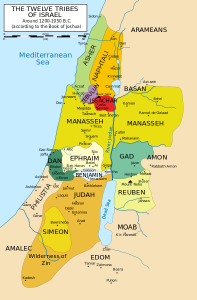If this is your first viewing, please see my Introduction before reading this.
20 March. Judges chapters 6-8
The story of Gideon is one of those beloved of Sunday school teachers, partly because of the very visual imagery and lots of action – threshing wheat, laying out fleeces, lapping water like dogs, smashing pottery and blowing trumpets. Strangely, the trampling of captured enemy leaders with thorns and briars is not mentioned so much. But the story is also popular as it illustrates a couple of things about living by faith.
Firstly, that quality is more important than quantity. When called by God to lead his people into battle, Gideon started with 32,000 men – still a lot fewer than the 135,000 of the Midianite army, but all he could muster from the Northern tribes. Yet God says that he still had too many, in case the Israelites took credit for a victory. He gradually reduces the number to three hundred choice troops, those who were not afraid and who lapped water like dogs (one interpretation of this is that they remained alert and looking around them, unlike those who knelt down to use their hands). With those 300, and under cover of darkness, Gideon achieves a victory by psychological means – imagine the terror of the Midianites roused in the middle of the night by the sounds of trumpets and lights suddenly appearing all around them! So one lesson is that by waiting for the right time when God gives the word, carefully selecting the right people, and making use of all our senses, we can achieve results for God against what may seem impossible odds.
The other lesson that is often taught from these chapters is that of ‘putting out a fleece’ that is, setting a test for God to pass before we accept his will, as Gideon did. I’m wary of that, as Jesus clearly said “do not put the Lord your God to the test”. It’s not really for us to dictate to God how he should reveal his will to us. If you have doubts about whether a perceived call to Christian service, or word of prophesy, is genuine, it is usually far better to discuss it with the elders of your church, than to set random ‘tests’ for the Almighty.
